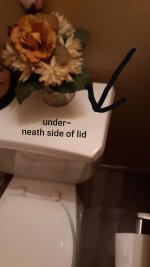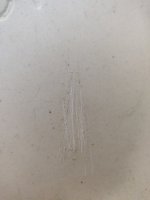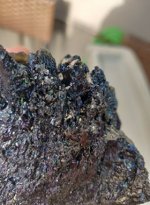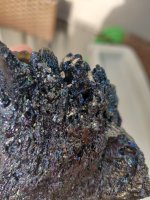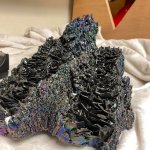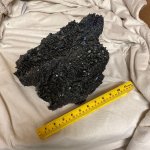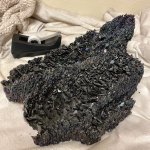Dear Users, I found a piece of a strange looking 'crystal/rock'. It is quite heavy for its size. Can someone please identify? Thanks in Advance.
Navigation
Install the app
How to install the app on iOS
Follow along with the video below to see how to install our site as a web app on your home screen.
Note: This feature may not be available in some browsers.
More options
You are using an out of date browser. It may not display this or other websites correctly.
You should upgrade or use an alternative browser.
You should upgrade or use an alternative browser.
What is this Beauty?
- Thread starter RockRock
- Start date
DDancer
Bronze Member
- Mar 25, 2014
- 2,339
- 2,002
- Detector(s) used
- Current Equinox 600
Past Whites DFX Garret GTI 2500 and others
Prospecting Minelab GPZ 7000
Past SD 2100 GP 3000 (retired)
- Primary Interest:
- All Treasure Hunting
It looks like a crystallization of Hematite. Try a streak test. Handsome specimen.
Upvote
0
Take the lid off the back of the toilet and scratch the stone on the inside of the unglazed porcelain, the color of the streak it leaves will help with identifying the specimen, I believe it is Hematite as well.
Upvote
0
- Thread starter
- #14
Thanks Steve, I made some research about carborundum and from the images I saw they seem quite similar. I read that carborundum is very rare to find in nature. Is there a way to test if this is a natural one or a synthetic made one? Thanks in Advance for your time and suggestions. 

Upvote
0
It looks like clinkers from a steam engine. Not unusual to find those near major shipping routes. The steam powered ships left trails of them along their routes.
Upvote
0
Looks like carborundum to me. I had an uncle that worked for a company that produced it. I’ve got this 17-pound piece sitting in my garage.
I looked closer at the first photo and I think you are right. No clinker ever crystallized in that distinct form.
It's man made. Now the question is who would leave carborundum in sand underwater in Malta?
Upvote
0
Top Member Reactions
-
 1899
1899 -
 1057
1057 -
 1005
1005 -
 981
981 -
 865
865 -
 840
840 -
 789
789 -
 744
744 -
 698
698 -
 584
584 -
 366
366 -
 364
364 -
 358
358 -
 345
345 -
 343
343 -
 342
342 -
E
329
-
 312
312 -
 308
308 -
 282
282
Users who are viewing this thread
Total: 2 (members: 0, guests: 2)


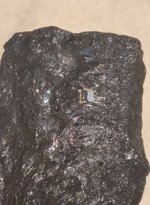
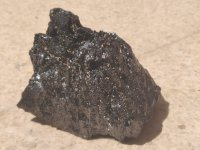
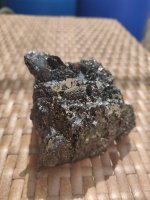
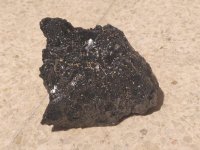
 .
. . I am quite a beginner when it comes to geology.
. I am quite a beginner when it comes to geology.